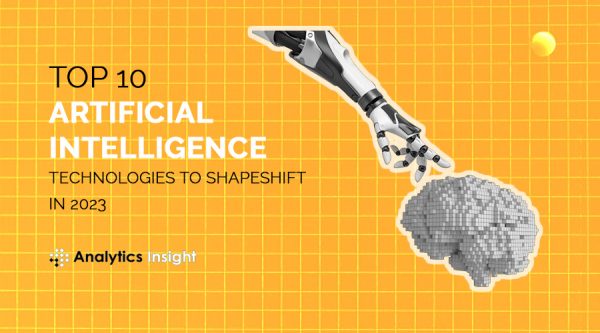AI technology will dynamically transform into unavoidable technologies. But how?
Five years back, the idea of self-driving cars was only a fantasy. Now they have become a reality and relatively ubiquitous, even though there is so much that is in the pipeline. Technologies can transform in the blink of an eye and artificial intelligence is no exception. People are fast adapting to artificial intelligence technologies for the predictive capabilities it has and the convenience it offers. Businesses are equally warming up to it either in the hope of improving overall performance to earn higher ROIs or as an unavoidable necessity. Here we discuss the top 10 artificial intelligence technologies that will shapeshift in 2023.
1. Predictive analytics:
Fast emerging as a go-to technique to derive valuable insights, it will be one of the most dynamic areas in artificial intelligence. It has come out of the shell of mathematics and statistic for a wider application in day-to-day lives.
2. Large Language Models:
LLMs uses machine learning algorithms to predict human language, code and even perform sentiment analysis. It is largely believed that LLMs in the future instead of just regurgitating words, will reflect sentiment to the tee.
3. AI-enabled led cybersecurity
Companies will invariably attempt to predict security threats. Thanks to artificial intelligence, businesses will have cybersecurity alert infrastructure as an essential part of their operations.
4. Improvised autonomous systems
Smart autonomous systems that can think outside the training rigor will be common in the coming year. AI models in the fields of drone research, autonomous exploration, and bio-inspired systems will be ubiquitous.
5. NFT art:
Providing greater power to artists, NFTs will define how art is perceived. Integration of NFTs with AI can provide opportunities to set up more art schools.
6. Digital avatars:
Mind-linked digital avatars can replace people as persons, making teleportation a possibility. Digital replicas of people present at different locations simultaneously will be a common sight.
7. AI ethics:
AI systems will evolve to comply with AI ethics as systems of moral principles and techniques that are intended to develop the responsible use of AI. Its core components will include avoiding AI bias, AI and privacy, avoiding AI mistakes, and managing AI environmental impact.
8. Military weapons:
Smart AI-enabled weapons will determine the course of the political deliberations if not wars. AI is being increasingly adopted into remote functionalities and protecting soldiers.
9. Process discovery:
Going deeper into process mining, the extensive use of AI techniques will help find the business consequences of particular actions such as mouse clicks, opening a particular document, a web page, etc.
10. Embedded Application:
Embedded applications are designed to have a special role for particular hardware with a specific purpose that must meet the time, size, energy, and memory constraints. AI-based systems will now enable real-time manipulation of processes.
Source: analyticsinsight.net









